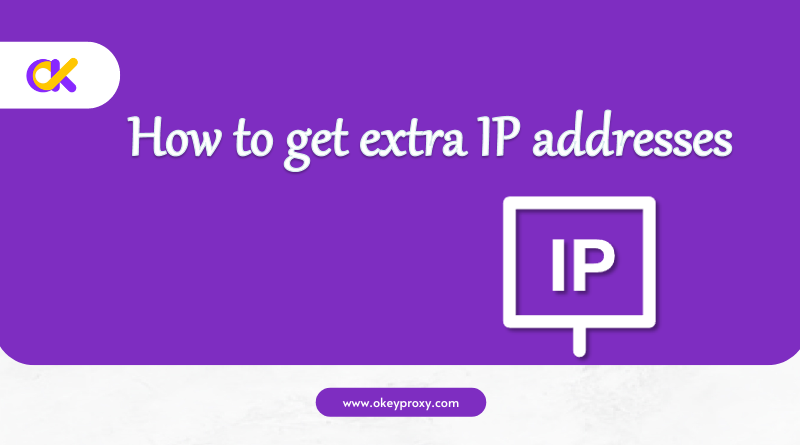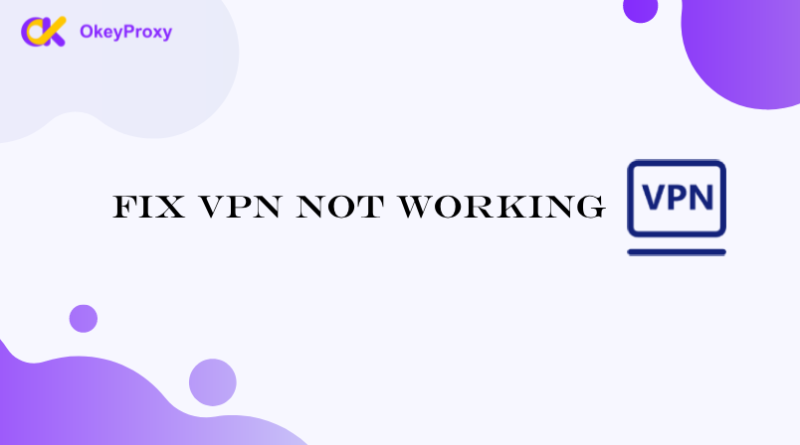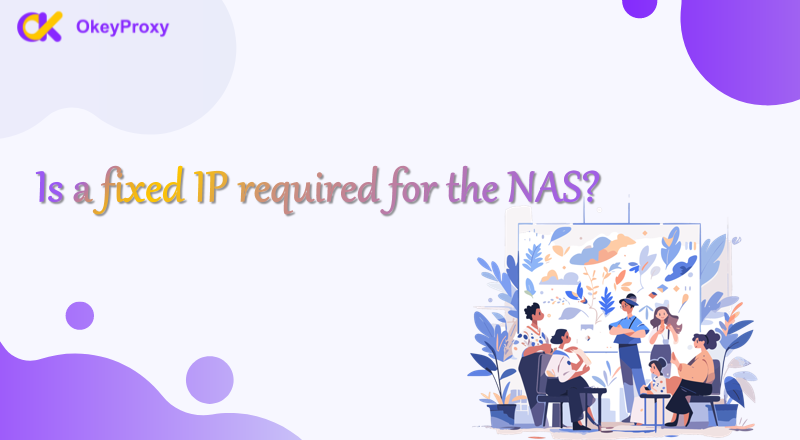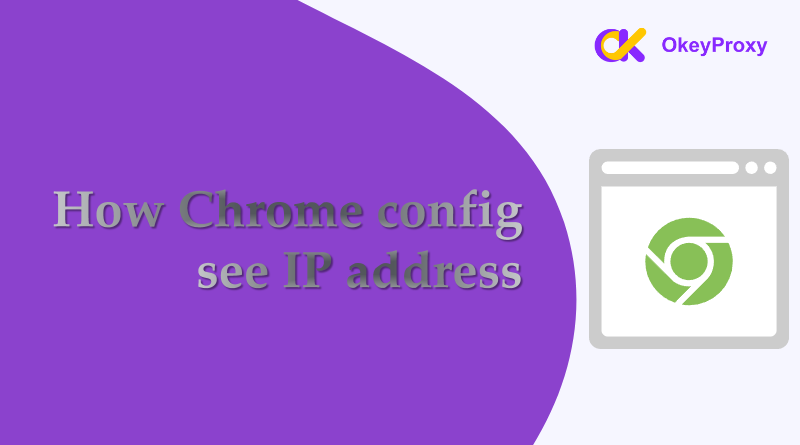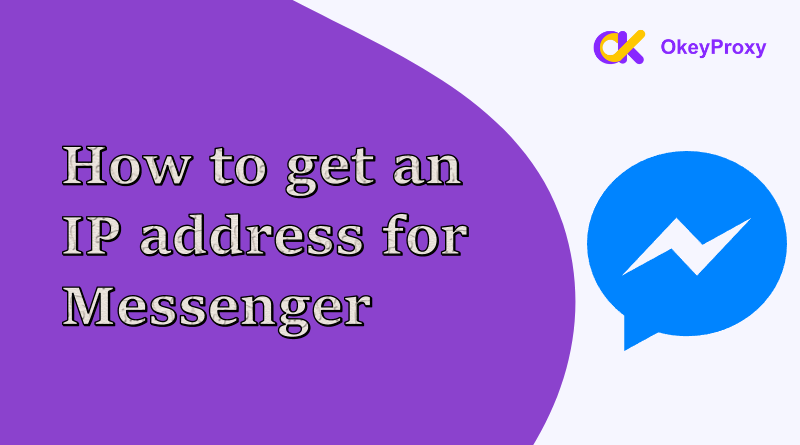Having multiple IP addresses can enhance online privacy, enable web scraping, bypass geo-restrictions, and improve network management. Whether for personal or professional use, acquiring additional IP addresses is straightforwardif the right methods and tools are chosen. This article explores how to get extra IP addresses in various ways, their benefits, best practices for usage and more.
What Is an IP Address?
An IP (Internet Protocol) address is a unique identifier assigned to devices connected to a network. It serves as a digital address, enabling devices to communicate over the internet. Typically, users are assigned a single IP address by their Internet Service Provider (ISP), but there are scenarios where extra IP addresses are necessary, such as:
-
Accessing geo-restricted content.
-
Conducting SEO analysis or web scraping.
-
Enhancing security and privacy.
-
Managing multiple online accounts.
Why Might More Than One IP Address Be Needed?
While an IP (Internet Protocol) address is a unique identifier assigned to devices connected to a network. Common reasons for needing an additional IP address include:
-
Hosting multiple websites on a single server.
-
Separating networks for security purposes.
-
Accessing restricted content or bypassing IP bans.
-
Running multiple accounts on platforms with IP restrictions.
Ways to Get Extra IP Addresses
1. Use a Proxy Service
Proxies act as intermediaries between a user and the internet. They allow users to route their traffic through different servers, providing additional IP addresses.
Types of Proxies:
-
Residential Proxies: Use IPs from real devices, making them harder to detect.
-
Datacenter Proxies: Provide faster speeds and scalability but may be less private.
-
Static Proxies: Offer consistent IPs, ideal for long-term tasks like maintaining accounts.
Recommended Proxy Service:
For reliable and diverse proxy options, OkeyProxy provides high-quality static residential proxies, ideal for accessing multiple IP addresses efficiently.
2. Get a VPN with Rotating IPs
A Virtual Private Network (VPN) with rotating IP features assigns a new IP address each time a connection is established. This method is suitable for users who prioritize both privacy and the need for different IPs.
Advantages:
-
Encrypts data for enhanced security.
-
Offers IP addresses from various locations.
Limitations:
-
VPNs might not be as efficient for tasks requiring constant IP changes, such as large-scale web scraping.
3. Purchase Additional IPs from Your ISP
Some ISPs allow users to purchase extra static IP addresses. This is particularly useful for businesses that need unique IPs for web hosting, email servers, or remote access.
Steps to Request Extra IPs:
-
Contact the ISP’s customer service.
-
Specify the reason for the request (e.g., network management or business needs).
-
Pay any associated fees.
Drawback:
This option is usually more expensive than other alternatives and might require justification for the need.
4. Turn on a Cloud Service
Cloud platforms like Amazon Web Services (AWS), Google Cloud, or Microsoft Azure provide virtual servers with unique IP addresses. Users can rent virtual machines (VMs) or containers and assign static or dynamic IPs to them.
Benefits:
-
Scalable solutions for businesses.
-
High reliability and control.
Use Cases:
Ideal for developers managing multiple applications or websites.
5. Rent or Lease IP Addresses
Specialized platforms allow users to rent or lease IPv4 or IPv6 addresses. This is a cost-effective option for those requiring IPs for temporary projects.
Popular Platforms to Rent IP:
-
IPXO
-
Heficed
Tip:
Always verify the provider’s reputation to avoid low-quality or blacklisted IPs.
Can a Router Be Used to Assign an Additional IP?
Yes, routers can support multiple IP addresses by enabling subnetting or configuring additional networks (VLANs). This approach is often used in offices or homes with advanced networking needs.
Have Free Options to Get Extra IP Addresses?
Free options exist but come with limitations:
-
Public Proxy Servers: Limited speed and security.
-
Free VPNs: Often unreliable with restricted features.
For critical or business use cases, investing in reliable solutions is advisable, such as OkeyProxy, to get extra IP addresses as needed.
Is It Legal to Use Multiple IP Addresses?
Yes, using multiple IP addresses is legal. However:
-
Ensure compliance with the terms of service of the ISP or platform being used.
-
Avoid misuse, such as fraudulent activities or spamming.
Conclusion
Obtaining extra IP addresses has become increasingly accessible, thanks to proxies, VPNs, cloud services, and ISPs. Each method has unique advantages tailored to specific needs, from bypassing restrictions to enhancing security. For users seeking reliable solutions, leveraging proxy services like OkeyProxy ensures efficient access to high-quality IPs with minimal hassle and start benefiting from the flexibility and functionality of multiple IP addresses today.

